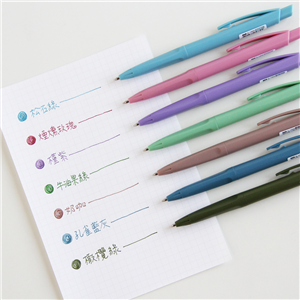作者:李磊
 收藏
收藏

 1二手徵求有驚喜
1二手徵求有驚喜
定價:NT$ 600
二手價:28 折,NT$ 170

運送方式:超商取貨、宅配取貨
銷售地區:全球
限量商品,即時庫存=1




臺北和上海的距離一度曾經顯得非常遙遠,但即使在相隔最遙遠的時代背景下,還是有近在呎尺的地方,張愛玲寫的上海是這一代台灣人所耳熟能詳的魅惑之地,臺北也有“小上海”之稱。潘玉良、林風眠這些「海派」畫家的作品,台灣市井也能認得出來。文學和藝術之於全人類,永遠是沒有距離的。上海與臺北兩座城市的交流,區別其他城市的不同之處,在於兩者都有著關於上海三四十年代的文化記憶,正因如此,上海美術館籌劃“上海故事——上海美術館館藏作品展”時,就立足於對“海派”文化發展的研究,尤其是對近幾十年來所謂“後海派”藝術的梳理,期望呈現給臺北觀眾一種既熟悉又陌生的藝術現象,講述上海這座城市所孕育出的特有的文化性格和文化故事。曾幾何時,臺北人看上海,居然可以是零距離,而且一眼看盡六十年風華。 “海派”藝術起源於19世紀中葉,以上海為活動中心,吸納並且引領著江、浙、皖乃至更大地區的藝術力量,其畫家陣容之浩大,繪畫風格之紛繁,以及得時代變革風氣之先的顯赫聲勢和深遠影響,均超過了此前所有的地方畫派。後期海派繪畫正值20世紀政治鼎革之際,新文化運動使得海派繪畫不僅出現了多元化的趨勢,而且其所指範圍具有很大的遊移和模糊性。 本次展覽從多元化的“後海派”出發,不僅上承“海派”繪畫特性,而且呈現出全球化格局下以上海為活動中心的藝術變遷,其繪畫主張、風格到傳播、價值,隨著時代需求而更加講求當代性、個體性和實驗性。期間所涉及的既有長三角地區本土性創作人,又有旅居海內外的江、浙、滬籍藝術家,或是從世界各地彙聚此地的藝術家;從輩分上來看,既有林風眠、顏文樑、劉海粟、潘玉良、關良、陸儼少、朱屺瞻、謝稚柳等,又有後續者程十發、劉旦宅、沈柔堅、賀慕群、俞雲階、林曦明等,更有當代活躍於畫壇的中堅人物潘公凱、盧輔聖、陳丹青、王劼音、施大畏、仇德樹等。他們的藝術觀念和表達方式不斷受到上海這個特殊地域文化的影響與重塑,似乎正逐步形成一個更大範圍,更具包容性、多元性、獨特性、實驗性的當代“海派”。
Taipei and Shanghai once seemed extraordinarily distant, but even separated by the widest gulf, they still share so much. The Shanghai described by Eileen Chang is a tempting place that is now very familiar to so many Taiwanese of this generation, and Taipei is often called "Little Shanghai." In the works of Pan Yu-Liang, Lin Fengmian and other "Shanghai-school" painters, one can still recognize Taiwan city scenes. There has never been any distance between literature, art, and humanity. The exchange between Taipei and Shanghai is distinguished from that of other cities in that they both share a cultural memory of Shanghai in the 1930s and 1940s. It is for this reason that when the Shanghai Art Museum began planning "The Story of Shanghai:Selections from the Shanghai Art Museum Collection," they chose to make the development of "Shanghai-school" culture the focus of their research, including a close examination of "post Shanghai-school" art. They hoped to present Taipei audiences with an artistic phenomenon that is at once strange and familiar, narrating the cultural story of Shanghai and the describing the unique cultural character fostered by this city. Soon, Taipei citizens will look at Shanghai and not feel any distance, and now in one glance they can take in 60 years of Shanghai elegance. The “Shanghai-school” art was originated in the middle of the 19th century. As Shanghai the center of arts movement, it absorbed the strength and led the massive power from a vast array of artists, painting styles from Jiang, Zhejiang, Anhui provinces and beyond. The ambiance and influence were profound and unprecedented. Its celebrated strength and deep influence exceeded that of all previous local art movements. Paintings from the later period of the Shanghai-school were created during the change of political regime in the 20th century, and the New Culture Movement caused the Shanghai-school artists to exhibit a new diversity of direction and ambiguity. This exhibition takes as its starting point the diversity of the "post Shanghai school," which not only inherits the painting characteristics of the “Shanghai school,” but also presents the changes in art under globalization, with Shanghai at the center. The viewpoint, style, communication method and value system have all become more contemporary, individualistic and experimental as the era has changed. During this period local artists from the Yangtze River delta area joined in the movement, as did artists from Jiang, Zhejiang, and Shanghai living at home and abroad, as well as artists from around the world who gathered together in Shanghai. Many senior artists are represented, including Lin Fengmian, Yan Wen-Liang, Liu Haisu, Pan Yu-Liang, Guanliang, Lu Yanshao, Zhu Qizhan, Hsieh Zhi-Liu, etc., and Cheng Shifa, Liu Dan-zhai, Shen Roujian, He Mu-Qun, Lu Fusheng,and Lin Xi-Ming. There are also many important artists active in modern painting circles, including Philip P. Pan, Lu Fu- sheng, Chen Danqing, Wang Jie Yin, SHI Da-Wei, Chou De-Shu. Their artistic concept and forms of expression have continually been influenced and shaped by the special culture of Shanghai, until this modern "Shanghai-school" gradually encompassed a larger geographical area and became more inclusive, diverse, unique, and experimental.
關於二手書說明:
商品建檔資料為新書及二手書共用,因是二手商品,實際狀況可能已與建檔資料有差異,購買二手書時,請務必檢視商品書況、備註說明及書況影片,收到商品將以書況影片內呈現為準。若有差異時僅可提供退貨處理,無法換貨或再補寄。
商品版權法律說明:
TAAZE 單純提供網路二手書託售平台予消費者,並不涉入書本作者與原出版商間之任何糾紛;敬請各界鑒察。
退換貨說明:
二手書籍商品享有10天的商品猶豫期(含例假日)。若您欲辦理退貨,請於取得該商品10日內寄回。
二手影音商品(例如CD、DVD等),恕不提供10天猶豫期退貨。
二手商品無法提供換貨服務,僅能辦理退貨。如須退貨,請保持該商品及其附件的完整性(包含書籍封底之TAAZE物流條碼)。若退回商品無法回復原狀者,可能影響退換貨權利之行使或須負擔部分費用。
訂購本商品前請務必詳閱退換貨原則、二手CD、DVD退換貨說明。
作者:李磊
 收藏
收藏

 1二手徵求有驚喜
1二手徵求有驚喜
二手價:28 折,NT$ 170 NT$ 600

運送方式:超商取貨、宅配取貨
銷售地區:全球
限量商品,即時庫存=1
臺北和上海的距離一度曾經顯得非常遙遠,但即使在相隔最遙遠的時代背景下,還是有近在呎尺的地方,張愛玲寫的上海是這一代台灣人所耳熟能詳的魅惑之地,臺北也有“小上海”之稱。潘玉良、林風眠這些「海派」畫家的作品,台灣市井也能認得出來。文學和藝術之於全人類,永遠是沒有距離的。上海與臺北兩座城市的交流,區別其他城市的不同之處,在於兩者都有著關於上海三四十年代的文化記憶,正因如此,上海美術館籌劃“上海故事——上海美術館館藏作品展”時,就立足於對“海派”文化發展的研究,尤其是對近幾十年來所謂“後海派”藝術的梳理,期望呈現給臺北觀眾一種既熟悉又陌生的藝術現象,講述上海這座城市所孕育出的特有的文化性格和文化故事。曾幾何時,臺北人看上海,居然可以是零距離,而且一眼看盡六十年風華。 “海派”藝術起源於19世紀中葉,以上海為活動中心,吸納並且引領著江、浙、皖乃至更大地區的藝術力量,其畫家陣容之浩大,繪畫風格之紛繁,以及得時代變革風氣之先的顯赫聲勢和深遠影響,均超過了此前所有的地方畫派。後期海派繪畫正值20世紀政治鼎革之際,新文化運動使得海派繪畫不僅出現了多元化的趨勢,而且其所指範圍具有很大的遊移和模糊性。 本次展覽從多元化的“後海派”出發,不僅上承“海派”繪畫特性,而且呈現出全球化格局下以上海為活動中心的藝術變遷,其繪畫主張、風格到傳播、價值,隨著時代需求而更加講求當代性、個體性和實驗性。期間所涉及的既有長三角地區本土性創作人,又有旅居海內外的江、浙、滬籍藝術家,或是從世界各地彙聚此地的藝術家;從輩分上來看,既有林風眠、顏文樑、劉海粟、潘玉良、關良、陸儼少、朱屺瞻、謝稚柳等,又有後續者程十發、劉旦宅、沈柔堅、賀慕群、俞雲階、林曦明等,更有當代活躍於畫壇的中堅人物潘公凱、盧輔聖、陳丹青、王劼音、施大畏、仇德樹等。他們的藝術觀念和表達方式不斷受到上海這個特殊地域文化的影響與重塑,似乎正逐步形成一個更大範圍,更具包容性、多元性、獨特性、實驗性的當代“海派”。
Taipei and Shanghai once seemed extraordinarily distant, but even separated by the widest gulf, they still share so much. The Shanghai described by Eileen Chang is a tempting place that is now very familiar to so many Taiwanese of this generation, and Taipei is often called "Little Shanghai." In the works of Pan Yu-Liang, Lin Fengmian and other "Shanghai-school" painters, one can still recognize Taiwan city scenes. There has never been any distance between literature, art, and humanity. The exchange between Taipei and Shanghai is distinguished from that of other cities in that they both share a cultural memory of Shanghai in the 1930s and 1940s. It is for this reason that when the Shanghai Art Museum began planning "The Story of Shanghai:Selections from the Shanghai Art Museum Collection," they chose to make the development of "Shanghai-school" culture the focus of their research, including a close examination of "post Shanghai-school" art. They hoped to present Taipei audiences with an artistic phenomenon that is at once strange and familiar, narrating the cultural story of Shanghai and the describing the unique cultural character fostered by this city. Soon, Taipei citizens will look at Shanghai and not feel any distance, and now in one glance they can take in 60 years of Shanghai elegance. The “Shanghai-school” art was originated in the middle of the 19th century. As Shanghai the center of arts movement, it absorbed the strength and led the massive power from a vast array of artists, painting styles from Jiang, Zhejiang, Anhui provinces and beyond. The ambiance and influence were profound and unprecedented. Its celebrated strength and deep influence exceeded that of all previous local art movements. Paintings from the later period of the Shanghai-school were created during the change of political regime in the 20th century, and the New Culture Movement caused the Shanghai-school artists to exhibit a new diversity of direction and ambiguity. This exhibition takes as its starting point the diversity of the "post Shanghai school," which not only inherits the painting characteristics of the “Shanghai school,” but also presents the changes in art under globalization, with Shanghai at the center. The viewpoint, style, communication method and value system have all become more contemporary, individualistic and experimental as the era has changed. During this period local artists from the Yangtze River delta area joined in the movement, as did artists from Jiang, Zhejiang, and Shanghai living at home and abroad, as well as artists from around the world who gathered together in Shanghai. Many senior artists are represented, including Lin Fengmian, Yan Wen-Liang, Liu Haisu, Pan Yu-Liang, Guanliang, Lu Yanshao, Zhu Qizhan, Hsieh Zhi-Liu, etc., and Cheng Shifa, Liu Dan-zhai, Shen Roujian, He Mu-Qun, Lu Fusheng,and Lin Xi-Ming. There are also many important artists active in modern painting circles, including Philip P. Pan, Lu Fu- sheng, Chen Danqing, Wang Jie Yin, SHI Da-Wei, Chou De-Shu. Their artistic concept and forms of expression have continually been influenced and shaped by the special culture of Shanghai, until this modern "Shanghai-school" gradually encompassed a larger geographical area and became more inclusive, diverse, unique, and experimental.
關於二手書說明:
商品建檔資料為新書及二手書共用,因是二手商品,實際狀況可能已與建檔資料有差異,購買二手書時,請務必檢視商品書況、備註說明及書況影片,收到商品將以書況影片內呈現為準。若有差異時僅可提供退貨處理,無法換貨或再補寄。
商品版權法律說明:
TAAZE 單純提供網路二手書託售平台予消費者,並不涉入書本作者與原出版商間之任何糾紛;敬請各界鑒察。
退換貨說明:
二手書籍商品享有10天的商品猶豫期(含例假日)。若您欲辦理退貨,請於取得該商品10日內寄回。
二手影音商品(例如CD、DVD等),恕不提供10天猶豫期退貨。
二手商品無法提供換貨服務,僅能辦理退貨。如須退貨,請保持該商品及其附件的完整性(包含書籍封底之TAAZE物流條碼)。若退回商品無法回復原狀者,可能影響退換貨權利之行使或須負擔部分費用。
訂購本商品前請務必詳閱退換貨原則、二手CD、DVD退換貨說明。
※ 二手徵求後,有綁定line通知的讀者,
該二手書結帳減2元。(減2元可累加)
請在手機上開啟Line應用程式,點選搜尋欄位旁的掃描圖示
即可掃描此ORcode
|
||||||||||||||||||
|
||||||||||||||||||
|
||||||||||||||||||













